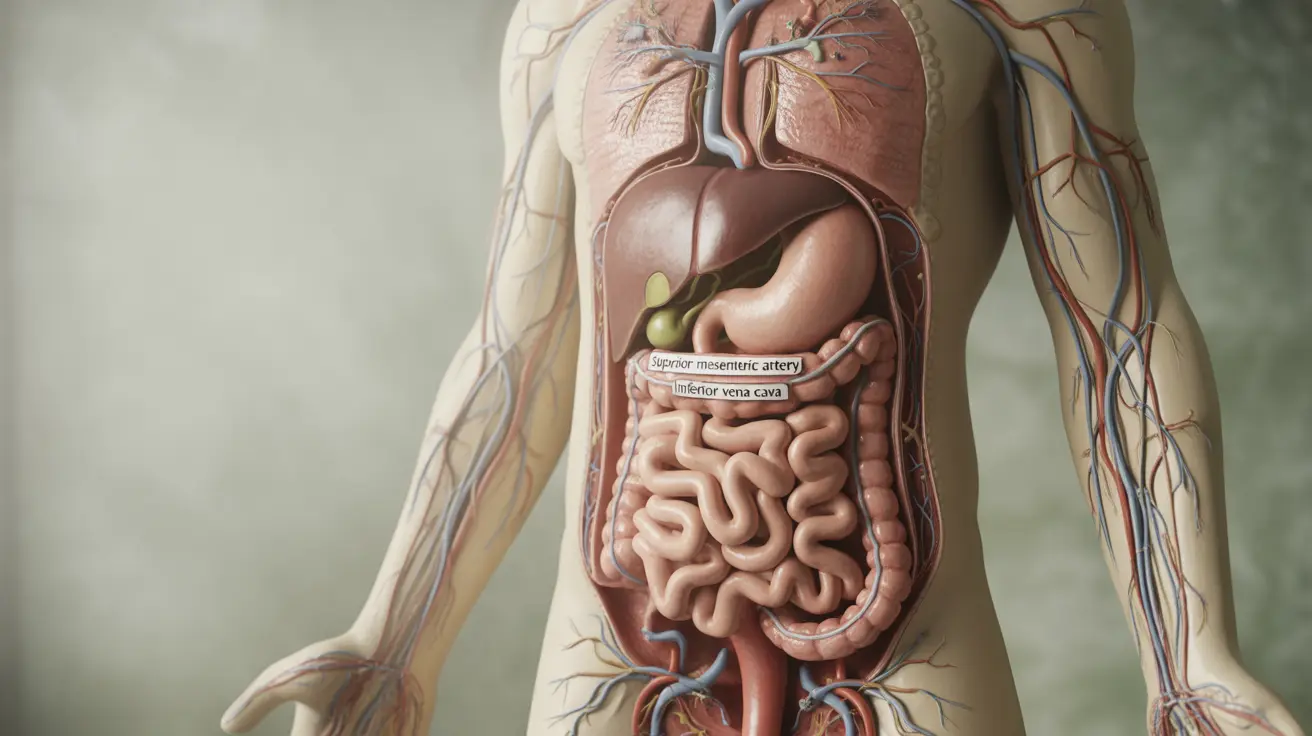The mesentery is a crucial but often overlooked organ that plays an essential role in maintaining digestive health and overall well-being. This fan-shaped fold of tissue connects your intestines to the abdominal wall, providing vital support for your digestive system while housing important blood vessels, nerves, and lymphatic components.
Recent research has elevated our understanding of the mesentery's significance, revealing it to be much more than just connective tissue. As we explore this remarkable organ, we'll discover how it contributes to digestion, immune function, and overall abdominal health.
Structure and Function of the Mesentery
The mesentery is a continuous organ that extends throughout the abdominal cavity, creating a sophisticated support system for your intestines. Its primary functions include:
- Providing structural support to keep intestines in place
- Carrying blood vessels that supply the intestines
- Housing lymphatic vessels crucial for immune function
- Containing nerves that regulate digestive processes
- Storing fat cells that contribute to metabolic health
This complex organ's unique structure allows for the flexibility needed during normal digestive movements while maintaining the stability necessary for proper organ function.
The Mesentery's Role in Immune Health
The mesentery serves as a critical component of the body's immune system, containing numerous lymph nodes and immune cells that help protect against infections and regulate inflammation. This network of immune tissue acts as a first line of defense against harmful pathogens that might enter through the digestive system.
Inflammation and Disease Prevention
The mesentery contains specialized cells that help regulate inflammation throughout the digestive tract. When functioning properly, these cells help maintain a balanced immune response. However, disruptions in this balance can contribute to various inflammatory conditions, including Crohn's disease.
Common Mesenteric Conditions
Several conditions can affect the mesentery's health and function:
- Mesenteric ischemia (reduced blood flow)
- Mesenteric panniculitis (inflammation of fatty tissue)
- Mesenteric lymphadenitis (swollen lymph nodes)
- Tumors or cancerous growths
Early recognition and treatment of these conditions are essential for preventing serious complications and maintaining digestive health.
Maintaining Mesenteric Health
While you cannot directly exercise or strengthen the mesentery, several lifestyle factors can help maintain its health:
- Eating a balanced, anti-inflammatory diet
- Staying properly hydrated
- Maintaining a healthy weight
- Regular physical activity
- Managing stress levels effectively
These practices support overall digestive health and help prevent conditions that might affect the mesentery.
Frequently Asked Questions
- What is the mesentery and what role does it play in digestive health?
The mesentery is a continuous organ that connects your intestines to the abdominal wall. It plays crucial roles in supporting the intestines, carrying blood vessels and nerves, and maintaining proper digestive function through its complex network of tissues.
- How does the mesentery contribute to immune function and inflammation regulation in the abdomen?
The mesentery contains numerous lymph nodes and immune cells that help fight infections and regulate inflammation. It acts as a crucial barrier against pathogens and helps maintain immune system balance in the digestive tract.
- What conditions can affect the mesentery, and how is it involved in Crohn's disease?
The mesentery can be affected by conditions such as mesenteric ischemia, panniculitis, and lymphadenitis. In Crohn's disease, the mesentery often becomes inflamed and thickened, contributing to the disease's progression and symptoms.
- How can problems with the mesentery impact intestinal blood flow or cause abdominal complications?
Issues with the mesentery can compress or restrict blood vessels, leading to reduced blood flow to the intestines (mesenteric ischemia). This can cause severe pain, tissue damage, and potentially life-threatening complications if left untreated.
- Are there ways to protect or maintain the health of the mesentery through diet or lifestyle?
While you cannot directly target the mesentery, maintaining overall digestive health through a balanced diet, regular exercise, proper hydration, and stress management can help support mesenteric function and prevent related conditions.




